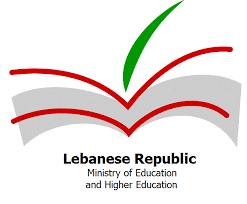
From Development to Emergency: The Lebanese Response to Education
By: Carmen Wilke
This summer I was honored with the opportunity to conduct research through the Tripoli Project, while being hosted at the Lebanese Ministry of Education and Higher Education (MEHE). The purpose of my research was to understand the policy decisions made by the MEHE during the protracted Syria crisis and their efforts to supply inclusive education for all children within their borders. Based at the Ministry during the weekdays, I carried out my research by conducting key informant interviews with critical stakeholders in the humanitarian and educational landscape across Lebanon. What I quickly discovered is that the story of the Emergency Response of the MEHE is not simply one of a humanitarian and crisis-driven nature, but a multi-faceted approach to developing a holistic system to which its staff, international donors, partners, and all people in Lebanon could depend on.
Lebanon holds the highest number of refugees per capita in the world, and the education system has struggled to accommodate this substantial transformation in needs and numbers. Through innovative policies and cooperative efforts, the MEHE is determined to strengthen and provide inclusive and equitable quality education for all. The case study I have been developing examines the scale and scope of the crisis in education and how the MEHE has responded to the immense challenges in education. The research seeks to explain the decisions and important factors underlying the MEHE’s decision-making during this time, its growing accomplishments, and the role of leadership and cooperation in education emergencies.
Before the war in Syria began in 2011, Lebanon was in a development phase of their public education system. They recognized their struggles and faults, and where children needed further support – developing the Education Sector Development Plan to increase literacy and improve student learning.
When the Syria crisis hit, all staff within the Ministry had to curve their focus from the development of their national system to a new phase: emergency response. This meant working with international donors on an unprecedented scale, managing the growing numbers of educational NGOs, trying to synthesize formal and informal educational efforts, and searching for resources necessary to maintain a system that had doubled in enrollment size, and much more.
With the help of partners such as UNHCR and UNICEF, the MEHE launched Reaching All Children With Education (RACE). The three pillars of this plan focus on: i) improved access to education opportunities, ii) improved quality of education services, and iii) strengthened capacity of the education system. This rolled-out the Second Shift Program, a program that divides the school day in two so that double the students can be reached. Lebanese students and some Syrian students attend the first shift, while only Syrian children attend the afternoon shift. Though still needing improvement, this program has allowed for over 200,000 non-Lebanese children to enter the public school system. According to statistics from the MEHE, Syrian students now surpass the enrollment of Lebanese students in public schools.
To continue to improve their success, MEHE enriched their response through RACE II and Support to RACE II (S2R2), both building on past programs and addressing cracks in the system. According to the MEHE, their key challenges deal with: the centralized governing system, outdated curriculum, lack of national learning assessment framework, teacher recruitment, infrastructure, and early grade literacy and numeracy. The MEHE hopes to use the updated programs to transition out of the protracted crisis that is now hitting its eighth year.
Lebanon has a long-standing history of valuing education for all its students. The Ministry attracts dedicated staff and partners who are learning and growing with the crisis. We should learn from the story of Lebanon as we grapple with the question: How can a state protect education during a migration crisis?


